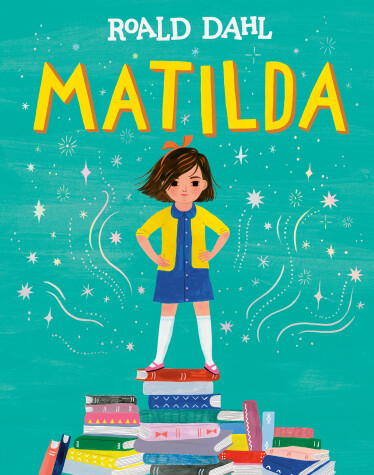Reviewed by nannah on
Book content warnings:
lesbophobia (specifically anti-butch)
sexism & misogyny
fatphobic
child abuse mention
suicide mention
Ugh. I'm so disappointed. It's one of those things you loved when you were little, only to discover it's incredibly problematic and lackluster when you grew up.
For one, the tone is so fatphobic it's sometimes hard for me to read the book without contempt. Many of the book's characters the audience are supposed to like are continuously described as "small", "thin", "tiny", etc., while the villains are fat and large and bulging. Fat people are described with such disgust that I'm just revolted by the author. I know this wasn't written recently, but it's just hard to read.
Not only that, but this author seems to project his own anti-feminist, anti-butch lesbian views onto this children's book. Miss Trunchbull is literally the personification of the radical feminist of his time: ugly, manly, large and bulky. She acts like a man, too, participates in what could be seen as stereotypical men's sports, has no need for marriage - in fact, she looks down on it when one of the children sings back Miss Honey's rhyme "Mrs. D Mrs. I Mrs. F F I, etc." and Miss. Trunchbull exclaims "Why are all these women married?".
Miss Trunchbull also hates anything feminine (aka the little girl /growing out/ her pigtails), and hates children. She also literally killed the patriarch of her family so she could be in charge. Reading this as a butch lesbian myself just made me roll my eyes every other page.
The plot started slowly, and then rushed faster and faster until the end just ... happened, and I was left feeling like the book ended without actually finishing, if that makes sense. There was no feeling of an actual conclusion.
And the relationship between Miss Honey and Matilda made me incredibly uncomfortable. The prose even mentions Matilda as a grown-up child rather than an actual child. And that Matilda and Miss Honey were equals. Which could make their relationship ... really weird. It's basically how Miss Honey "opens up" about her past. But she really just blurts out "my father killed himself" to a six-year-old girl. This all reads so awkwardly and worryingly. It doesn't matter if this kid is the most intelligent girl in the world, of all time! She's still a child.
Anyway, yeah ... I didn't enjoy this.
Reading updates
- Started reading
- 23 April, 2018: Finished reading
- 23 April, 2018: Reviewed
- Started reading
- Finished reading
- 23 April, 2018: Reviewed
